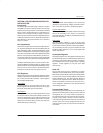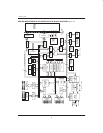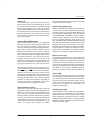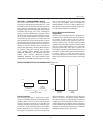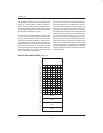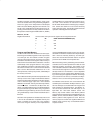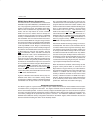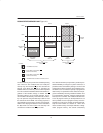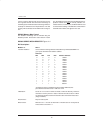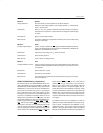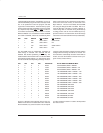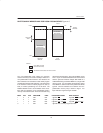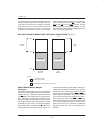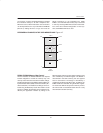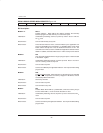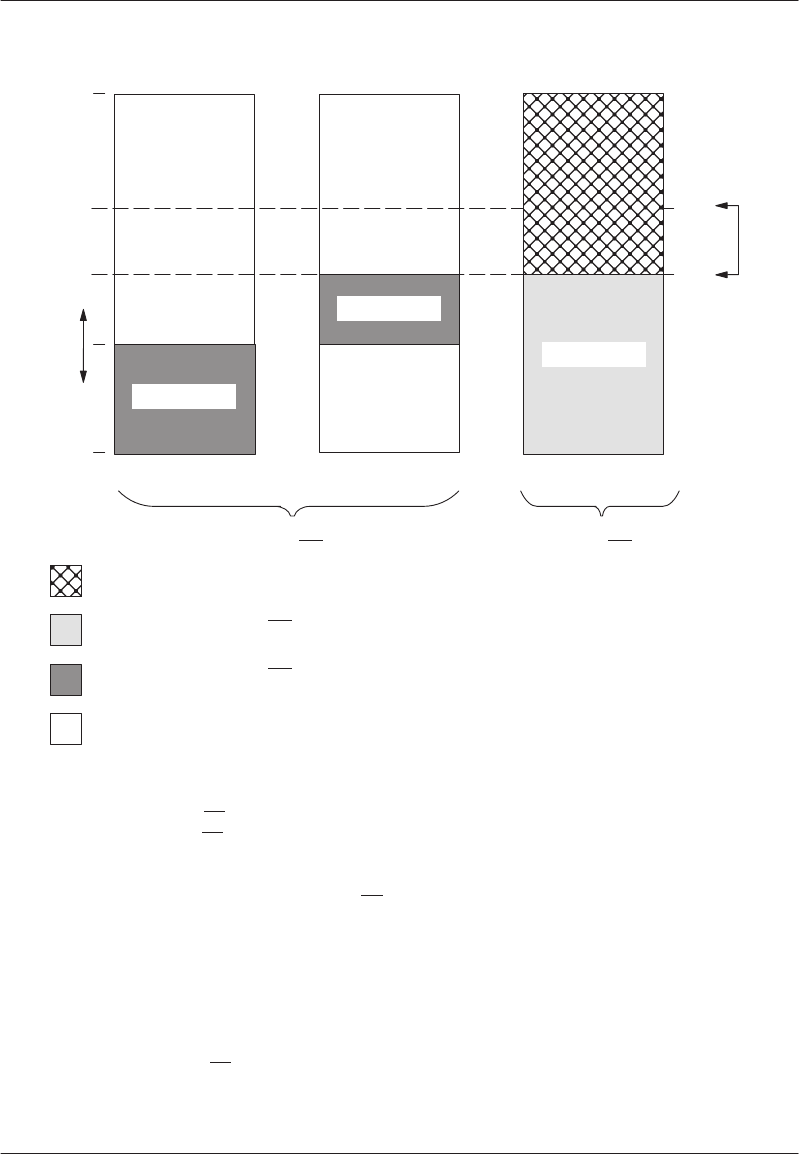
USER’S GUIDE
050396 14/173
15
DS5000 SERIES MEMORY MAP Figure 4–3
BYTE–WIDE ACCESS WITH CE2
(NONVOLATILE RAM)
FFFFh
7FFFh
1FFFh
0000
PROGRAM DATA DATA
= NO MEMORY ACCESS
LEGEND:
MEMORY MEMORY MEMORY
BYTE–WIDE
BUS ACCESS
64K
32K
8K
RANGE
ADDR.
BYTE–WIDE
BUS ACCESS
BYTE–WIDE
BUS ACCESS
PARTITION
ADDR.
=
= EXPANDED BUS ACCESS ON PORTS 0 AND 2
BYTE–WIDE ACCESS WITH CE1
(NONVOLATILE RAM)
=
ECE2=1ECE2=0
DEVICE #2 SELECTED
WITH CE2
DEVICE #1 SELECTED
WITH CE1
The above memory map covers the standard operating
case. There are two conditions that can modify this
memory map. The first is the EA pin. The second is the
Security Lock. When the EA
pin is grounded, the
DS5000 will force all memory access to the Expanded
bus. This causes the DS5000 to behave like an 8031 re-
gardless of the Partition, Range, or ECE2. The EA
should be pulled to +5V for normal operation. The se-
cond modifier is the Security Lock. When set, the Secu-
rity Lock prevents using the Bootstrap Loader to read
the contents of the NV RAM. For security purposes, it
also prohibits program memory access on the Expand-
ed Bus. Thus all program fetches must be restricted to
the Byte–wide bus when locked. The Security Lock
overrides the condition of the EA
pin as well.
The selection of memory map controls provide unprec-
edented flexibility to configure a system. However, it is
possible to select contradictory settings. The micro will
compensate for these as follows. The Partitioning func-
tion allows a user to select the quantity of program and
data memory. It is possible to select all data and no pro-
gram in NV RAM by choosing a Partition of 0000h. This
is a valid selection. However, using this setting and the
Security Lock is a conflict. This condition asks the micro
to use all program memory on the Expanded bus, but
also to prohibit the use of program memory on the Ex-
panded bus. In this event, special circuits will automati-
cally force the Partition to a location of 7FFFh. This
means all 32K memory on the Byte–wide bus is desig-
nated program memory. The second contradictory



